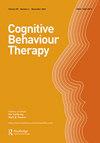Exploring the supervisory relationship in the context of culturally responsive supervision: a supervisee’s perspective
IF 4.3
2区 心理学
Q1 PSYCHOLOGY, CLINICAL
引用次数: 0
Abstract
Abstract Clinical supervision is a relationship-based education, considered crucial in providing clinicians with emotional support, skill development and improving client outcomes. Culturally responsive supervision assumes that culture permeates clinical practice and supervision. Culturally responsive supervisors promote the development of cultural competence in supervision, through modelling, reflective discussion and responsivity. Research has demonstrated that greater perceived cultural responsivity in supervision may result in greater satisfaction for supervisees, particularly those from racially or ethnically minoritised (REM) backgrounds. The current study explores supervisee perceptions of culturally responsive supervision and supervisory relationships between different supervisory dyads, comprising supervisees from REM and White backgrounds. This was a cross-sectional design incorporating a between-groups comparison. Trainee and qualified clinical psychologists, counselling psychologists and CBT therapists (n = 222) completed an online survey. Perceptions of cultural responsivity and the supervisory relationship were explored. Participants provided information about their supervisor’s race and ethnicity and their own, and were organised into four supervisory dyads. Participants from REM backgrounds in dyads with White supervisors perceived their supervision as significantly less culturally responsive, with significantly lower quality supervisory relationships. Greater perceived cultural responsivity in supervision significantly predicted better supervisory relationships (regardless of participant cultural background). Findings suggest that culturally responsive supervisory practices may play an important role in developing cultural competence and strengthening the supervisory relationship, particularly in cross-cultural supervisory dyads. Findings present important clinical and theoretical implications. Key learning aims (1) To understand the need for cultural responsivity within the context of clinical supervision. (2) To explore the differences between cross-cultural and culturally similar supervisory dyads in perceptions of cultural responsivity in supervision. (3) To explore the differences between cross-cultural and culturally similar supervisory dyads in perceptions of the quality of the supervisory relationship. (4) How does culturally unresponsive supervision impact supervisee experiences?文化响应式监督背景下的监督关系探讨:一个被监管者的视角
临床监督是一种基于关系的教育,被认为是为临床医生提供情感支持、技能发展和改善客户结果的关键。文化响应性监督假设文化渗透到临床实践和监督中。文化响应型管理者通过建模、反思性讨论和响应性促进文化能力的发展。研究表明,在监督中,更大的文化反应可能会导致被监管者更满意,特别是那些来自种族或少数民族背景的人。本研究探讨了被监管人对文化响应性监管的看法,以及不同监管群体(包括REM和白人背景的被监管人)之间的监管关系。这是一个包含组间比较的横断面设计。实习和合格的临床心理学家、咨询心理学家和CBT治疗师(n = 222)完成了一项在线调查。对文化反应性和监督关系的看法进行了探讨。参与者提供了他们主管的种族和民族以及他们自己的信息,并被分为四个主管组。来自快速眼动背景的参与者,在与白人主管的二人组中,认为他们的主管在文化上的反应明显较低,管理关系的质量明显较低。更大的感知文化响应在监督显著预测更好的监督关系(不管参与者的文化背景)。研究结果表明,文化响应型管理实践可能在发展文化能力和加强管理关系方面发挥重要作用,特别是在跨文化管理中。研究结果具有重要的临床和理论意义。主要学习目标(1)了解临床监督背景下文化反应性的必要性。(2)探讨跨文化和文化相似的管理者在管理文化反应认知上的差异。(3)探讨跨文化和文化相似的管理双元在管理关系质量感知上的差异。(4)文化非响应性监管如何影响被监管者的体验?
本文章由计算机程序翻译,如有差异,请以英文原文为准。
求助全文
约1分钟内获得全文
求助全文
来源期刊

Cognitive Behaviour Therapy
PSYCHOLOGY, CLINICAL-
CiteScore
9.20
自引率
0.00%
发文量
25
期刊介绍:
Cognitive Behaviour Therapy is a peer reviewed, multidisciplinary journal devoted to the application of behavioural and cognitive sciences to clinical psychology and psychotherapy. The journal publishes state-of-the-art scientific articles within: - clinical and health psychology - psychopathology - behavioural medicine - assessment - treatment - theoretical issues pertinent to behavioural, cognitive and combined cognitive behavioural therapies With the number of high quality contributions increasing, the journal has been able to maintain a rapid publication schedule, providing readers with the latest research in the field.
 求助内容:
求助内容: 应助结果提醒方式:
应助结果提醒方式:


